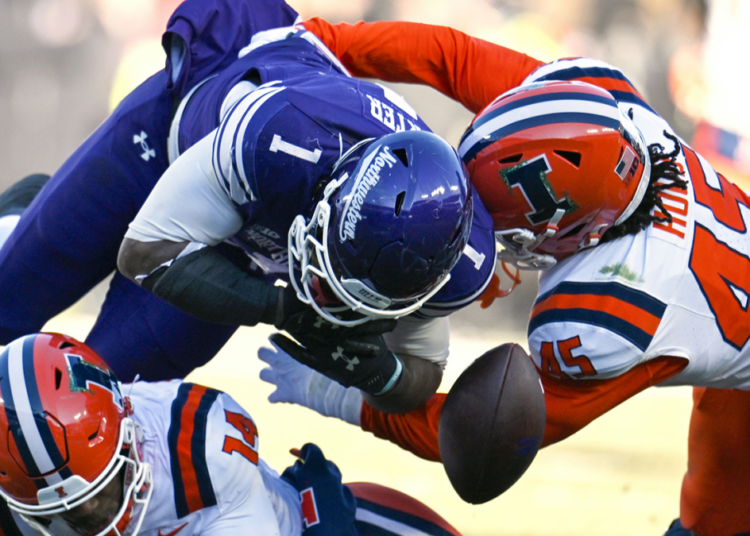For now, the latest NIL legislative arms race in college sports is centered around taxes.
CBS Sports has obtained a draft version of a bill which is expected to be filed soon in the Illinois house of representatives that means the state joins Alabama and Georgia in exempting NIL money earned by college athletes from state income tax.
The bill, sponsored by state representative Travis Weaver (who graduated from the University of Alabama as an undergrad), is an amendment to the state’s tax code and as currently written would begin in tax year 2027.
“The nice thing about this is it’s not existing revenue, which I think makes it a lot easier,” Weaver said. “It’s hard to cut a tax when it’s something that you have been collecting and it’s baked into your budget, whereas this, we’ve never been taxing, NIL [income], not to mention that there hasn’t really been any, right? I mean, this is just such a wild, wild west.”
Thirteen in-state schools play Division I men’s and women’s college basketball, while three (Illinois, Northern Illinois, and Northwestern) play FBS football. Weaver points to the knock-on effects of increasing the competitiveness of in-state school as something that has the potential to dwarf whatever tax revenue is missed out on by making athletes exempt from the 4.95% state income tax rate. He also cited enrollment increases that come when sports programs win as an added benefit.
“The reality is, we’re going to collect more tax revenue when Illinois football is successful,” Weaver said. “We’re going to sell a heck of a lot more tee shirts and baseball caps, and we’re going to have more people staying in our hotels, and they go to the U of I for games. So I think we got to continue to be competitive in sports, and we’ve got to keep up with what other states are doing.”
There is precedent to exempt athlete earnings from taxation in the United States. In 2016, President Barack Obama signed a bill exempting Olympic medal earnings from Federal income tax as long as the recipients earn less than $1 million annually. But where college athlete NIL income differs is that every student on a college campus can earn money for their name, image and likeness – but that income would still be taxed. As an example, a social media influencer at the University of Illinois would be under different tax rules than a strong safety. Similarly, a student who also collects a paycheck from the University, such as in the cafeteria or in the computer lab, would also not be tax-exempt.
That disparity is where bills in Georgia, Alabama, and soon in Illinois may end up facing hurdles in order to get passed into law, according to two sports accountants.
“To me, [these bills are] the definition of special interest and shows just how important college sports are as a whole,” Katie Davis, an accountant who specializes in college sports, told CBS Sports. “I think it’s interesting that it’s specific to NIL income for college athletes.
“It doesn’t include other college students who are earning an income. It doesn’t include other influencers that are using their name, image and likeness. [The Georgia bill] doesn’t include NFL players that are either playing for the Falcons or playing against the Falcons and the Jock tax that they’re charged. So it’s just very specific.”
How Nick Saban helped inspire NIL legislation in Georgia that would aid Kirby Smart in recruiting
Richard Johnson
There is also the question of how much of a recruiting advantage this really affords the schools. Will exempting a recruit scheduled to make $100,000 at Tennessee (with no state income tax) really be the deciding factor that pushes them to Georgia or Georgia Tech now that they aren’t subject to a 5.39% state income tax?
“I don’t think somebody’s going to make a decision over $5,000,” said Robert Railola, an accountant who specializes in tax strategies for high net worth athletes and entertainers. “It’s not a big chunk.”
Weaver told CBS Sports the current language is a “starting point” and the process for a bill like this means it will be rolled into the full state budget proposal passed at the end of the legislative session in May, rather than being passed as a standalone bill on its own.
Mirroring what happened when NIL went into effect back in 2021, more states are expected to join the fray with tax exemptions in the coming weeks in an effort to keep up.
Read the full article here

























Discussion about this post